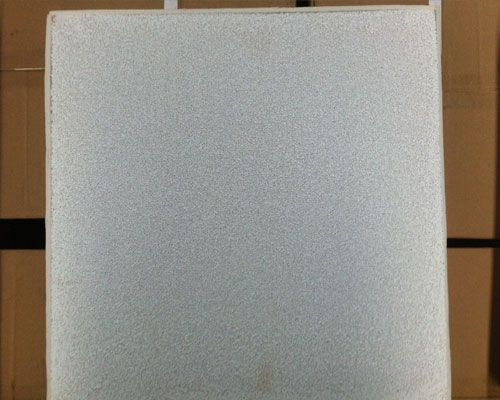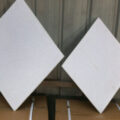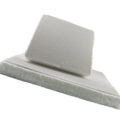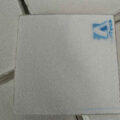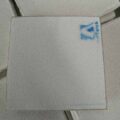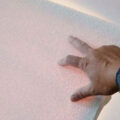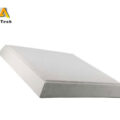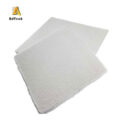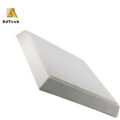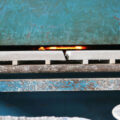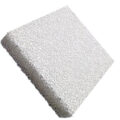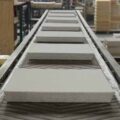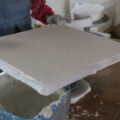Molten aluminum usually must be filtered before casting. The filtration process removes particles that may cause rejects in the final product. Traditionally, Ceramic Disc Filter for Molten Aluminium is used.
Ceramic Disc Filter for Molten Aluminium is made of alumina refractory slurry by impregnating the slurry with reticulated foams of specific porosity. The impregnated foam is then dried and fired in a kiln. The foam burns away, leaving behind a porous ceramic body that serves as a filter. Ceramic filters vary in size, usually 7 inches, 9 inches, 12 inches, 15 inches, 17 inches, 20 inches, 23 inches, and 26 inches wide and 2 inches thick (16 cm, 20 cm, 27 cm, 34 cm, 38 cm, 45 cm, 52 cm and 58 cm, 5 cm thick).
When in use of ceramic foam filter, install the ceramic disc filter in the CFF filter box. The liquid aluminum is poured into the filter box through the ceramic foam filter, and the filter traps the fine particles in the liquid metal. After the casting operation is completed, the aluminum slag remaining in the ceramic filter forms a block of almost solid aluminum.
Ceramic foam filters can remove a large number of such inclusions from molten aluminum. Foam ceramic filter technology has become the main method for filtering commercial aluminum alloys worldwide. Due to its low installation and operating costs and ease of use, the technology quickly expanded to aluminum casting workshops of various types and levels of complexity.
Over the years, it has been steadily developing towards the use of finer pore ceramic foam filters to provide higher melt cleanliness, which is a requirement for the continuous improvement of the quality of aluminum processed products. For example, in the application of aluminum can body panels, 40 and 50 holes per inch (PPI) foam filters are now commonly used in the production of slabs. In addition, finer pore filters are currently being evaluated. However, the use of significantly finer pore filters requires a lot of pretreatment to reduce the level of inclusions and prevent the filter from clogging prematurely or being blocked by residual inclusions. The presence of solid particles such as oxides, carbides, nitrides and borax compounds in metals (such as aluminum) and insoluble inclusions in liquids such as molten salts can significantly affect the plasticity during rolling or extrusion deformation, and the surface quality of the final metal.

